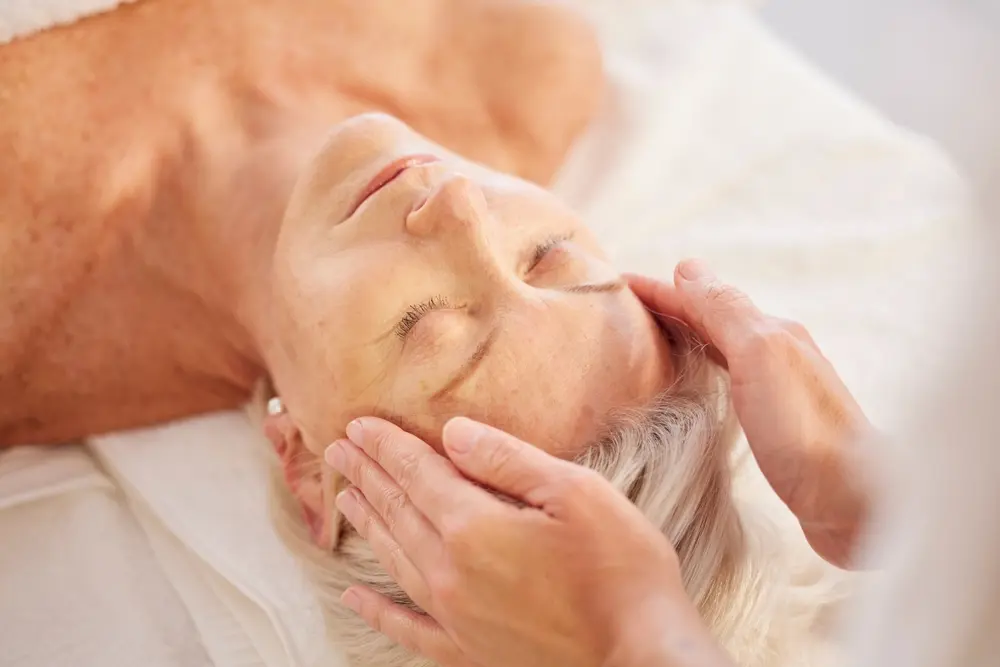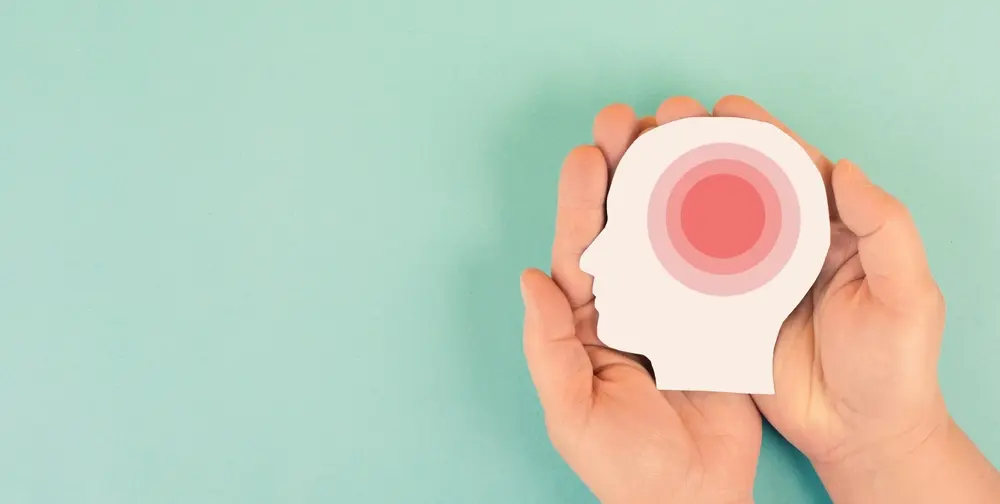Headache Treatments in Charlotte, NC
All headaches hurt, but not all pain is the same—correct diagnosis is key! The following information serves as a guide to better understanding different types of headaches. Schedule an appointment today to begin your road to better health!

Tension Headache
A tension headache typically presents as a steady ache, tightness, or discomfort. It may be distracting but is not usually debilitating. Stressful situations are a primary trigger.
Tension Headache Symptoms
- Mild to moderate headache
- Dull, achy pain, usually on both sides of the head
- Tightness or pressure in the forehead
- Muscle tenderness or tension in your neck and shoulders
- Pain that often improves with OTC medications
- Pain worsened by stress, poor sleep, or poor posture
Tension-type headaches (TTH) are not typically associated with nausea or vomiting. While you may avoid bright lights or loud sounds during a headache, TTH usually does not involve both photophobia (light sensitivity) and phonophobia (sound sensitivity).
Types of Tension Headaches
- 0-1 episode/month: Infrequent episodic-type tension-type
- 2-15 episodes/month: Frequent episodic-type tension-type headache
- > 15 episodes/month: Chronic tension-type headache

Migraine
A migraine is a moderate to severe, throbbing headache that is often debilitating.
Migraine Signs and Symptoms
- Nausea and/or vomiting
- Sensitivity to light or sound
- Pounding or throbbing pain
- Pain on one side of the head
- Depressed mood or changes in mood
- Yawning, fatigue, or difficulty sleeping
- Pain aggravated by head bending and exercise
- Post-headache lethargy
- Autonomic symptoms (e.g., red or tearing eyes, swelling around the eyes, runny nose)
Migraines are classified as with or without aura. An aura can occur before or during a migraine and may include visual disturbances, tingling/numbness, weakness, dizziness, palpitations, and sensitivity to odors or scents.
Common Migraine Triggers
- Alcohol
- Cigarette smoking
- Heat
- Foods high in nitrites (e.g., bacon, preserved meats)
- Exertion
- Bright light
- Certain medications
Cluster Headache
- Pain starts quickly, usually peaking within 10-15 minutes.
- Relatively short-lived, lasting between 15 minutes and 3 hours.
- Cluster headaches occur multiple times per day and may last for days to weeks before disappearing for weeks, months, or even years.
- Sudden onset of pain, generally around or behind the eye, often recurring in the same pattern.
- Symptoms (typically on the same side as the pain) may include a stuffy nose, tearing of the eye, a smaller pupil, a droopy eyelid, nausea, and generalized restlessness or agitation.
- Cause is not well understood—may be related to a sudden release of histamine or serotonin.
- Males are more frequently affected than females, with onset typically around age 30.
- Cluster headaches are extremely painful.
Hypnic Headache
- Very rare, typically occurring in people aged 40-80.
- More common in women than men.
- Occurs exclusively during sleep, typically lasting 15 minutes to 3 hours, usually at the same time each night (between 2 am – 4 am).
- Often referred to as an “alarm clock” headache as it wakes you from sleep.
- Pain may occur on one or both sides, unlike Cluster headaches, which are one-sided.
- Symptoms may include tearing eyes, drooping eyelids, stuffy nose, and migraine-like symptoms such as nausea, although these are less common.
- A history of migraines may increase the risk of hypnic headaches—1 in 3 patients with hypnic headaches also suffer from migraines.
- Cause is not well understood, but it likely involves the hypothalamus, which regulates body functions such as body temperature, thirst, sleep cycles, blood pressure, and heart rate.

How to Keep a Headache Diary
Recording details of your migraine attacks or headaches can help:
- Your doctor make a diagnosis.
- Recognize triggers and warning signs.
- Assess whether acute treatment or preventive medication is working.
- Show patterns in your attacks.
A headache diary should include:
- Date, including the day.
- How long the episode(s) lasted.
- Severity of the pain (mild, moderate, severe, or on a scale from 1-10).
- Dr. Estes’ pain scale is defined as:
- 1-3: Distraction can make you forget about the pain.
- 4-6: Pain limits your daily activities.
- 7: You only feel like eating and going to the bathroom.
- 8: You only go to the bathroom; conversation is difficult.
- 9: You are moaning or crying uncontrollably, unable to converse.
- 10: You are bedridden or even delirious; medical sedation may be required.
- Dr. Estes’ pain scale is defined as:
- Any other symptoms, such as:
- Generalized dizziness
- Vertigo (a sense that you or the room is spinning)
- Photophobia or phonophobia
- Increased sensitivity to smells
- Changes in your ability to move normally
- Medication taken, including:
- Regular, daily medication (e.g., blood pressure meds) with the time taken.
- Medications for headache (preventive and abortive), including if a second dose was taken.
- Any additional information that may be helpful, such as side effects from medication, potential triggers, menstrual cycle, changes in medication, or other social or family situations or stressors.
Treatment Options for ALL Headache Types
- OMM is a cornerstone of our treatment, targeting the structures (muscles, ligaments, fascia) causing or contributing to the problem.
- We utilize physician-grade e-stim (a more robust and varied type of stim than a home TENS unit) along with heat or cold therapy.
- We offer research-based prescription medication therapy for the prevention and treatment of headaches.
- In addition to OTC medications, we provide injections (Botox/botulinum toxin, trigger point, dry needling) to treat the cause and symptoms of your headaches.
- We also recommend additional modalities, including various types of therapy (PT for flexibility and strengthening, CBT, acupuncture, massage therapy).
Schedule a Chronic Headache Consultation
If you’re struggling with chronic headaches in the Charlotte area, contact Renaissance Performance Medicine to schedule a consultation with a headache specialist. We will work with you to discover the root causes of your headaches and provide prevention tips and treatment options that will work for you. Give us a call at 980-242-2992 today to get started on the road better health!
